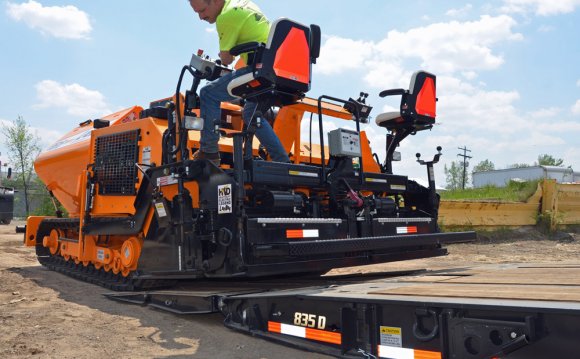
You've been great deal of thought some time, the good news is it's time to purchase your first self-propelled paver. Issue is, just what do you need to know before making your purchasing decision? Certainly, equipment functions and advantages are very important, as it is the price. But much more essential, say manufacturers, is the way the machine is going to be utilized … today, and tomorrow.
Purchase a device that may accommodate just small jobs, and that's all it will probably do effortlessly. The cost will carry less sticker shock, but larger, higher-paying tasks will be unthinkable. Conversely, get even more device than you'd previously utilize, and will also be investing in it, and its requisite larger support equipment, for many years to come.
So whatis the answer? Like most various other major buy you would like to make, begin with a definite image of the manner in which you desire to use it, and do your research.
Understand the job
"technicians should ask by themselves just how much asphalt they would like to put-down in one day, and then find the machine that'll do that, " says LeeBoy service manager Mark Bolick. "If goal is always to put-down somewhere between 100 to 150 a great deal of asphalt each day, a tilt hopper (gravity-fed) paver will do the job. Whether or not it's slightly greater, state between 300 to 500 tons just about every day, an inferior conveyor-fed paver would be the violation. If they anticipate putting down 500 or higher tons every single day, then they will be needing a far more effective conveyor-fed paver.
"technicians need certainly to define their longer-range company objectives, too, and their expectations the first 12 months in business.
Once again, people who intend to do driveways exclusively will begin with a cheaper tilt-hopper paver. Those either paving or likely to pave larger tasks will want a conveyor model. In any case, it is critical to remember that technicians earn money by placing asphalt down."
John Hood, manager of product development and product sales for Bomag Americas paving items, agrees. "making use of a tilt-hopper paver positively limits the total amount of asphalt a contractor can pay in one day."
Hood states that as a rule of thumb, a gravity-fed paver will definitely cost anywhere between $35, 000 and $60, 000 and, at the deluxe, contractors may be able to deposit around 300 tons of asphalt in a day, that is 30 tons per driveway for 10 driveways. That is lots of work, but the same device will not do bigger commercial tasks.
"If providers want to develop their particular companies in terms of the task dimensions and work quality, after that you start with a smaller conveyor paver is probable the way to go, " he claims.
Obviously, there's nothing as simple as 1-2-3, meaning that huge is certainly not constantly more efficient or faster, says Cameron Calder, executive vice president for Calder Brothers Corp. "A conveyor-fed paver will place even more asphalt on a lawn in the same length of time, provided the work lets you make use of the increased material feed price related to conveyor pavers."
But remember total job performance is key. On a job in which a specialist must enter, escape, and perform a good job, a nice rubber-tire, gravity paver will on do a conveyor paver, specially where room and obstacles are facets. Obstacles like concrete shields, countries, curbs, overhanging trees and energy outlines, unusual forms all restrict the ability to line-up the vehicle therefore the paver.









